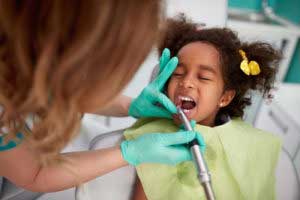Question: Does Your Child Need Braces?

Getting braces is something of a rite of passage for teens, but orthodontic treatment can sometimes benefit even younger children, too. The American Dental Association says undergoing an orthodontic evaluation around the age of 7 can help identify any issues that might benefit from early intervention. We agree with that recommendation — keep reading to find out more about whether or not your child is likely to need braces, and why it’s important to always get a second opinion no matter what you need.
How a Child’s Mouth Develops
By the time your child is seven, some of their permanent teeth have already come in and we can start to see evidence of potential orthodontic issues like:
- Overbite: When the upper teeth reach too far over the lower
- Underbite: When the bottom teeth cover the top
- Crossbite: When the upper and lower jaw do not meet properly
- Gapped teeth
- Tooth crowding
We can see how your child’s bite will continue to develop at the age of seven — and because the jawbone has not yet fully formed, it’s the best time to start fixing a few issues in particular.
Early Orthodontic Intervention
With early orthodontic intervention, an orthodontist takes advantage of the fact that your child’s jaw is still growing to help shape it into the proper form.
Some of the issues that can be attended to with early orthodontic intervention include:
- Crowding: If there is not enough room for the teeth to erupt side by side in the jawline, an orthodontist may use a palatal expander to make the arch bigger and create more space for the teeth to come through without issue.
- Overbite/underbite: Using special functional appliances can help to reposition the jaws and correct issues with the bite.
Kids who receive the early orthodontic intervention will likely need further treatment later on, but seeking orthodontic treatment early on can help to reduce treatment times with braces and appliances during adolescence.
Always Get a Second Opinion
Sometimes parents are told their children need braces or early ortho intervention when they really just don’t. To avoid added expense and putting your little one through unnecessary stress, we advise parents to always get a second opinion before getting braces or any appliance! Getting a second opinion definitely doesn’t hurt anything — and it can help you get the information you need to make informed decisions on your little one’s oral health.
